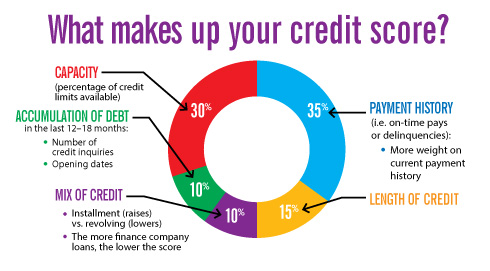Deducting mortgage interest can add up to a pretty penny in savings for the average homeowner. Knowing the basics can help you determine which deduction you qualify for. For instance, taking a deduction on a construction loan is great, unless you don't plan on moving into the property you're working on. In which case, it can end up biting you back in the long run. Hopefully, this article from
thebalance.com can help clear things up!
The Home Mortgage Interest Tax Deduction
Paying Mortgage Interest Can Reduces Your Taxable Income
By William Perez
Updated February 21, 2017
You've probably heard that owning your own home comes with a few nice tax perks. One of them is that the interest you pay on your mortgage loan is tax deductible.
Claiming Home Mortgage Interest
You have to itemize your deductions on Form 1040, Schedule A to claim mortgage interest. Schedule A also covers many other deductible expenses, including real estate property taxes, medical expenses, and charitable contributions.
Sometimes these all add up to more than the standard deduction for your filing status, making it worthwhile to itemize. Otherwise, you'll save more tax dollars by foregoing the home mortgage interest deduction and claiming the standard deduction instead. Complete Schedule A and compare the total of your itemized deductions to your standard deduction to find out which method is most advantageous for you.
Here are a few other things about this deduction that you'll want to keep in mind.
Qualifying for the Mortgage Interest Deduction
Mortgage interest includes that which you pay on loans to buy a home, on home equity lines of credit and on construction loans. The deduction is limited to interest paid on your main home and/or a second home. Interest paid on a third or fourth home isn't deductible.
You must also be on the hook for the loan – the debt can't be in someone else's name unless it's your spouse and you're filing a joint return.
It must be a bona fide loan in that you have a contractual obligation to pay it back. Finally, your home must act as security for the loan and your mortgage documents must clearly state this.
Your home can be a single family dwelling, a condo, a mobile home, a cooperative or even a boat – pretty much any property that has "sleeping, cooking and toilet facilities," according to the Internal Revenue Service.
Determining How Much Interest You Paid
You should receive Form 1098, a Mortgage Interest Statement, from your mortgage lender at the beginning of the new tax year. The form reports the total interest you paid during the previous year. You don't have to attach the form to your tax return because the financial institution must also send a copy of Form 1098 directly to the IRS.
Make sure the mortgage interest deduction you claim on Schedule A matches the amount reported on Form 1098. The amount you can deduct may be less than the total amount that appears on the form based on certain limitations. Keep Form 1098 with a copy of your filed tax return for at least four years.
Dollar Limitations on Home Acquisition Debt
Home loans and the interest you pay on them are subject to some overall limitations. One limit applies to loans used to buy or build a residence.
This is "home acquisition debt." The term refers to any loan you take for the purpose of acquiring, constructing or substantially improving a qualified home.
You can't deduct interest on more than $1 million of home acquisition debt for your main home and/or your secondary residence. The limit is reduced to $500,000 if you're married and file separately.
For example, let's say you borrowed $800,000 against your primary residence and $400,000 against your secondary residence. Both loans were used solely to acquire the properties. Together, the loans add up to $1.2 million, exceeding the $1 million limit for home acquisition debt.
Now let's say that both loans have a fixed interest rate of 5 percent. The total interest you paid for the year was $60,000. You would only be able to claim a mortgage interest deduction for $50,000 of that, the interest on the first $1 million of home acquisition debt. The remaining $10,000 is the result of loan value that exceeds the $1 million limit so you can't claim it.
Limitations on Home Equity Debt
A home equity debt is a loan you take out for a reason other than to acquire, construct or substantially to improve a qualified home. It may also be a loan you take to improve a qualified residence, but it exceeds the home acquisition debt limit.
You can't deduct interest on more than $100,000 of home equity debt for your main home and/or your secondary residence. This limit is reduced to $50,000 if you're married but filing separately. Your deduction for home equity interest may be reduced even below this $100,000 limit if your indebtedness exceeds the fair market value of your home.
Interest paid on home equity debt is an adjustment for the alternative minimum tax, not so affectionately known as the AMT.
For this example, let's say you borrowed $300,000 in a home equity line of credit. The amount you borrowed did not exceed the fair market value of your home so you're OK there. You used $150,000 of the money to add a new family room to your residence, and you spent the remaining $150,000 on your son's college tuition. Half the loan is treated as home acquisition debt because it was used to substantially improve your home. This portion would be subject to the home acquisition debt limitation. The other half is treated as home equity debt because it was not used to improve your home. You would be able to deduct interest only up to the $100,000 limit on this portion. So assuming you paid a total of $21,000 in interest, it would break down like this:
- $10,500: Fully deductible home acquisition debt on the first half the loan
- $7,000: Deductible home equity debt on two-thirds of the home equity portion of the loan or $100,000 of that $150,000 portion
- $3,500: Non-deductible home equity debt representing the interest paid on the portion of the home equity debt that exceeded $100,000
You'd also have to report the $7,000 to the IRS as an AMT adjustment on Form 6251.
Joint Mortgages
If you jointly hold the mortgage with someone else who's not your spouse, you're entitled to deduct only the interest that you personally pay regardless of which of you receives Form 1098 from the lender. But there's a loophole here. Co-borrowers who make payments to prevent foreclosure can deduct the interest paid even if the interest was supposed to be paid by someone else. The editors of JK Lasser's "Your Income Tax" pass along this tip:
"The Tax Court has allowed a joint obligor to deduct his or her payment of another obligor's share of the mortgage interest if the payment is made to avoid the loss of property, and the payment is made with his or her separate funds." (page 328)
Home Construction Loans
You can deduct interest on mortgages used to pay for construction expenses. The proceeds must be used to acquire the land and for construction of the home. Expenses incurred in the 24 months before construction is completed count toward the $1 million limit on home acquisition debt.
But there's a catch. If you deduct interest on a construction loan for two years, then you decide to sell the property rather than move in and use it as your residence, you may have to restate your returns for the years you deducted the interest to characterize it as investment interest instead. This can limit its deductibility. In other words, the IRS may want some money back.
Points Paid
Points paid on acquisition debt for primary and secondary homes are fully deductible in the year they're paid, but points paid on refinancing must be amortized over the life of the loan. Points aren't always reported on Form 1098, but you might find them on your HUD-1 closing statement.
When to Seek the Help of a Tax Professional
Figuring out the home mortgage interest deduction is straightforward for many taxpayers. Add up the interest reported on your Forms 1098 and enter the total on Schedule A. You can use the worksheet in Publication 936 to calculate your allowable deduction, and you can figure the AMT adjustment for home equity debt using the Home Mortgage Interest Adjustment Worksheet found in the Instructions for Form 6251.
You might want to check with a tax professional, however, if you bought or sold property during the tax year. In fact, it would make sense to seek the advice of a tax pro even before you buy or sell real estate if only to get a handle on the tax consequences of your decision.




































/about/dark-stain-application-on-new-oak-hardwood-floor-184881406-573e139f5f9b58723d7a472d.jpg)




